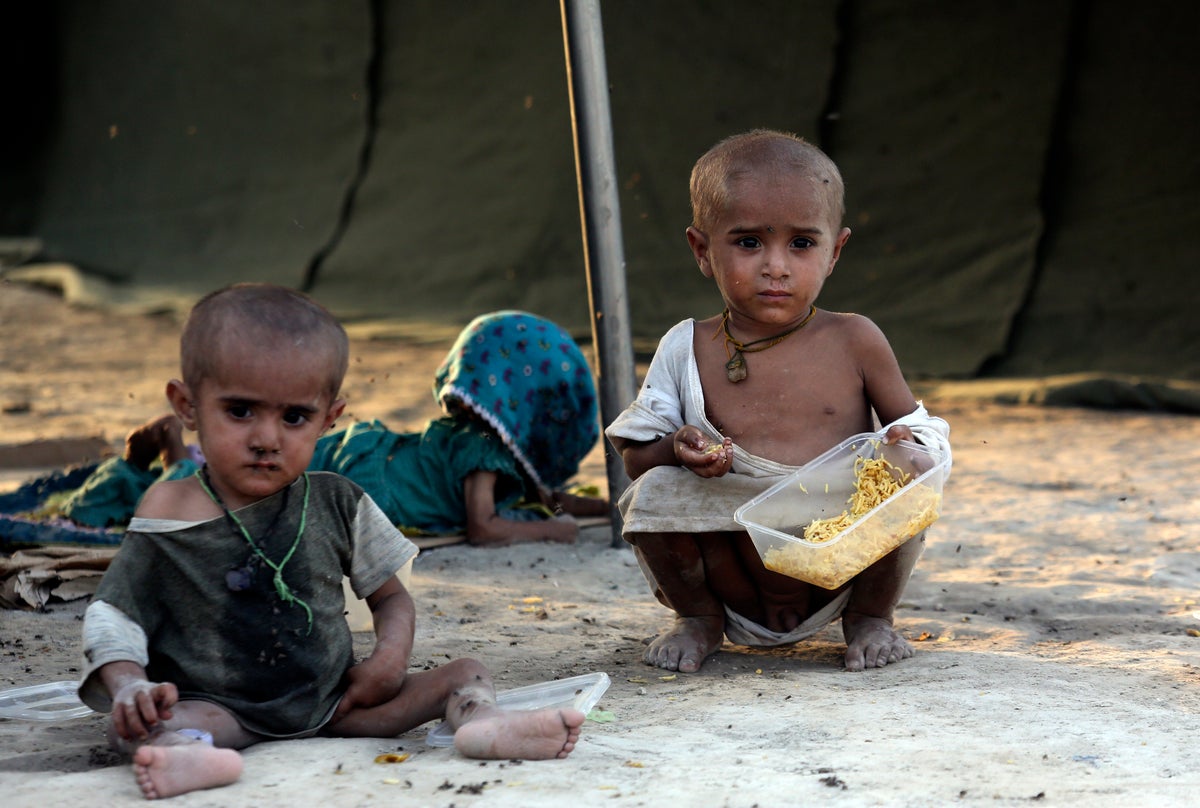
Pakistani volunteers spread out in boats Wednesday across the inundated Sindh province to try and rescue those stranded in submerged towns and villages as the country struggles with record-breaking floods.
The unprecedented deluge, which began in mid-June, has triggered landslides and collapsed houses, killing 1,355 people and leaving over 600,000 homeless. At one point, an estimated third of Pakistan was submerged for weeks in floodwaters.
Set off by exceptionally heavy monsoon rains, the flooding has so far affected 3.3 million people, of which 177,265 have been evacuated from their homes, according to the National Disaster Management Authority.
The volunteers, from various charities, last month joined the massive operation led by the government and supported by the country's powerful military, to save as many lives as possible amid the surging waters that have destroyed crops, roads, bridges and homes.
The rescuers face an uphill struggle as many residents — especially in remote areas — refused to evacuate and stayed on in their homes, believing they would not be in danger from the floods.
The volunteers who reached the town of Mehar in the southern part of Sindh province, have evacuated scores of people over the past weeks, said Mohammad Ilyas, a volunteer from al-Khidmat Foundation, a local charity.
Koro Khan, 45, rescued from the nearby village of Sultan Bhatti, told The Associated Press that he had waited for help for 13 days.
“We were stuck ... I lost my house and everything," he said, adding that he couldn't take any of his belongings from his home and was now uncertain about his future.
Ilyas, who spoke to the AP by phone, said he had been going out in his boat this week from one village to another, just randomly, and had brought dozens to safety himself — including a pregnant woman he rescued on Wednesday from Mehar.
“We are grateful to God that we saved this woman, who was about to give birth to a child," he said.
In neighboring Baluchistan's Naseerabad district, volunteer Meer Ahmed from the Edhi Foundation said he and his colleagues evacuated more than 4,000 people from flood-hit areas in the past several weeks.
Although the rains eased off and the floodwaters have receded in many parts of Pakistan, Sindh remains one of the worst-hit regions. It prompted the United Nations last week to issue an appeal for $160 million in emergency aid for Pakistan's flood victims.
Since then, many countries and international aid agencies have rushed food, medicines and other supplies to Pakistan.
In televised remarks, Prime Minister Shahbaz Sharif said Wednesday he visited Sindh earlier in the day and saw what he described as something resembling “a sea of water" in the province — adding that he had never seen such devastation in his life before.







